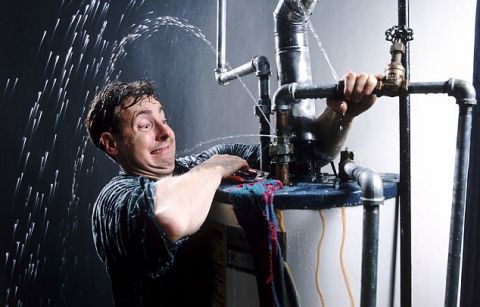—————————————————————————————————————————————-
As a result of information contained below and the potential electric loads that may be added on our system,
the Board has placed a MORATORIUM on the installation of new Level II (or higher) Electric Vehicle Chargers
anywhere in Lake Country Village. Please contact the Property manager with any questions.
—————————————————————————————————————————————-
As you know, the HOA and all of us inherited the existing homes and construction parameters from our developer and to a large extent from the Air Force who constructed our homes in 1959, when electrical systems in homes were very different. Because of this, there are several unique aspects of the electric services in Lake Country Village.
- Each Unit is supplied by a 100-amp electric service which is fed from a meter enclosure at one end of the building.
- Each Building’s electric service is also protected by a single master breaker, required by code, which is rated variously at 150 amperes for duplexes and triplexes and 200 or 225 amperes for quads. This device essentially further limits the individual service capacity to 50 to 75 amperes depending on the building arrangement.
- Each Building is supplied by a single underground electric service from the underground or overhead system owned by the Municipal Lighting Department of the City of Plattsburgh.
- In the category of more information than you want to know consider the following. Units in Phase I, II and portions of Phase III receive electricity at 120/240 volts. This means that both 120 volts and 240 volts are available in each unit. Some Units in Phase III, generally those on Kansas and Iowa, receive electricity at 120/208 volts. These Units do not have 240 volts available. Instead, they have 208 volts. Many larger appliances require (or recommend) connection to 240 volts but most of these are dual rated for both 240 and 208 volts. However, 240-volt (OR dual rated) appliances that are heating related, such as ranges, hot water heaters and electric dryers, and that are connected to 208 volts, will operate less efficiently (75% of their rated power). This means that design temperatures may not be attained (or will take longer to attain), and it will take longer to heat your hot water, dry your clothes or cook your meals. Single rated 240 volt rated motors will run hotter and may be prone to premature failures. (Motors in 240-volt household appliances are usually rated 120 volts, for example the motor that turns the drum in an electric dryer. These will be fine on a 120/208-volt service since they receive 120 volts in either case.) Because of this, if your electric service is 120/208 volts, you should make sure any new 240 volt rated equipment you plan to connect to your service can be operated adequately on a 208-volt system.



